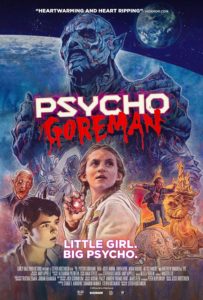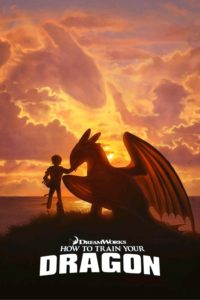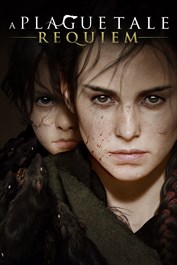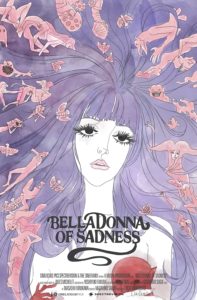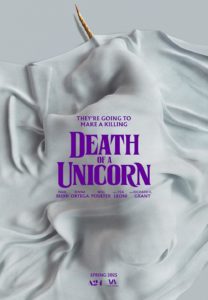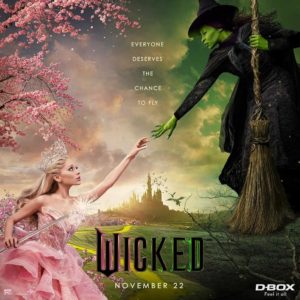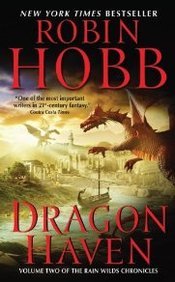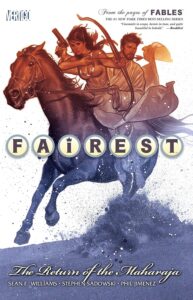 I don’t even know the last time I read a Fables-adjacent book, nor what it was[1]. And I’m not even sure how many books are left. I think not many? I should probably zerg rush the ending, but that would make it still months away. Just not years.
I don’t even know the last time I read a Fables-adjacent book, nor what it was[1]. And I’m not even sure how many books are left. I think not many? I should probably zerg rush the ending, but that would make it still months away. Just not years.
In any event, this book was way way off in the periphery of the series. The land of Indus (think The Jungle Book) is no longer threatened by that one woodcutter’s evil empire, since it doesn’t really exist anymore. But all the villages and palaces and suchlike have been basically emptied of able-bodied men who went off to lose the war, leaving only the elderly, the infirm, the very young, the harems[2], and of course the [other] women.
Which brings us to the main character, Nalayani, protector of her village from roving packs of dhole, which are wolf-adjacent animals from the Indian subcontinent. (I had heard of them before, but not with any commonality.) Anyway, she must now quest to the new maharaja I mentioned to ask for help with the problem, only to find herself embroiled in a civil war and with a pretty unlikely ally, at least if you remember previous events in the series, which I must admit I did not very well.
I have no idea if I should know who Nalayani is as a fabled character? I definitely do not, which did not negatively impact my enjoyment of the story, and anyway there were other characters I did recognize. If the series wasn’t nearly over, I’d think big things were afoot in the main sequence as a result of this one. As it is… maybe this was a happy ending?
[1] I mean, now that I’ve searched it and linked it, I maybe know. But I did not before.
[2] If you happen to live in the maharaja’s palace, at least, and this I suppose explains the presence of the new maharaja, Shah Ah Ming.
